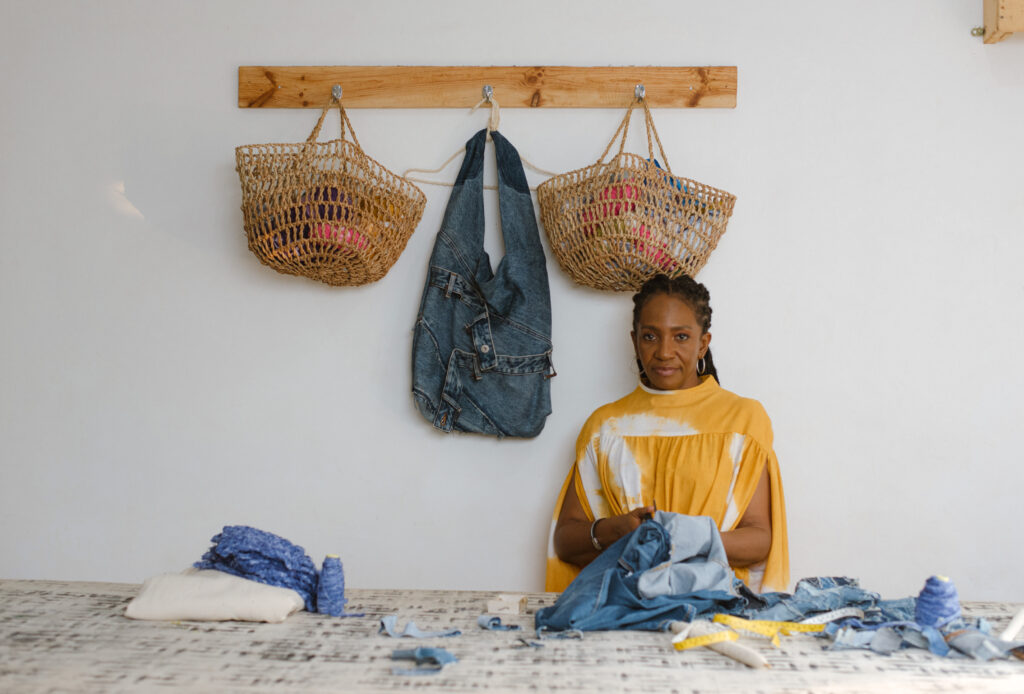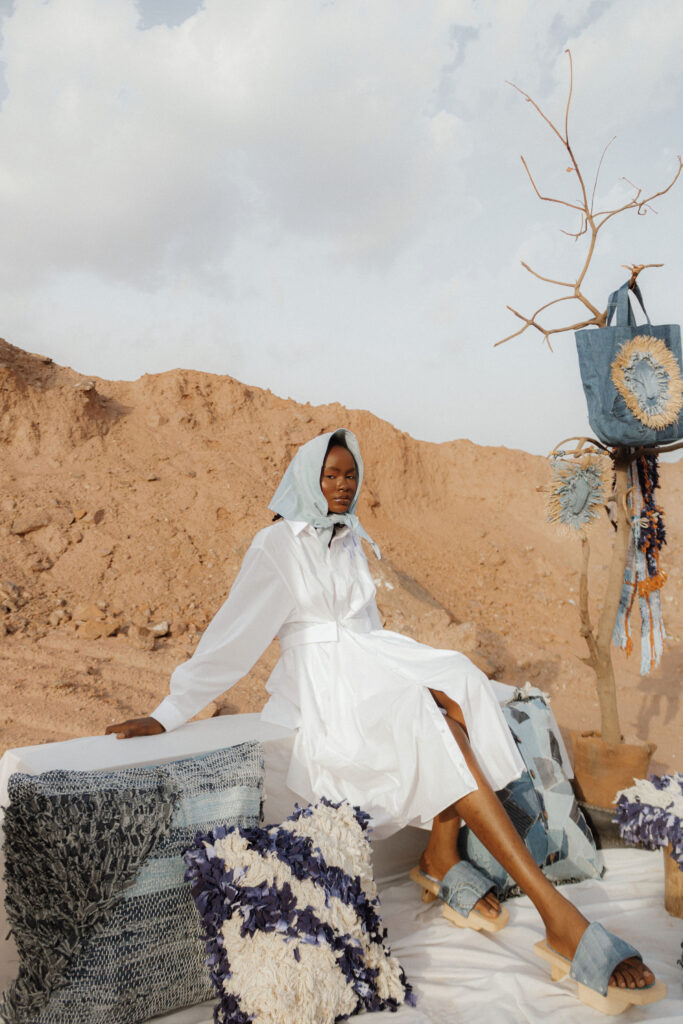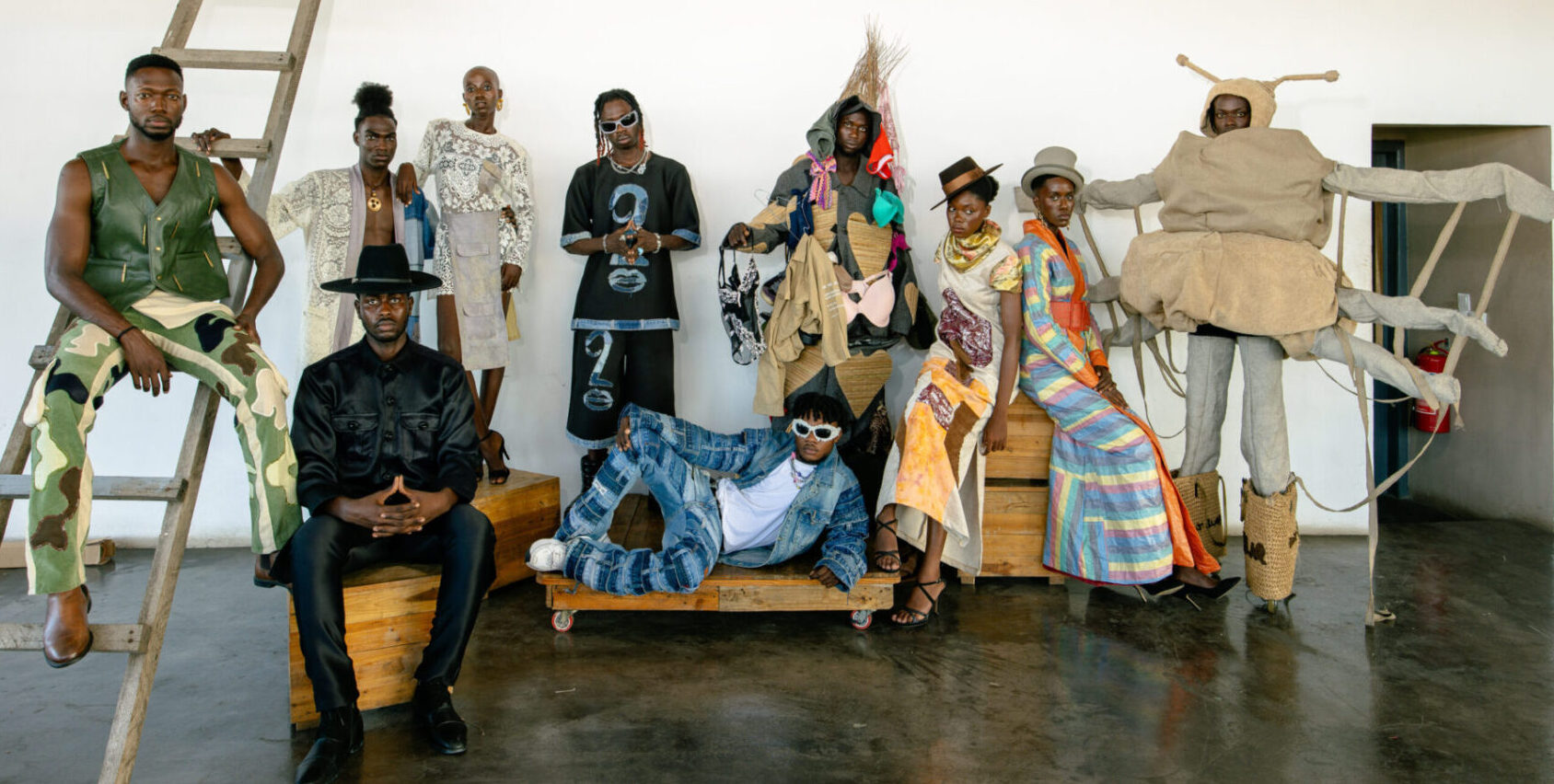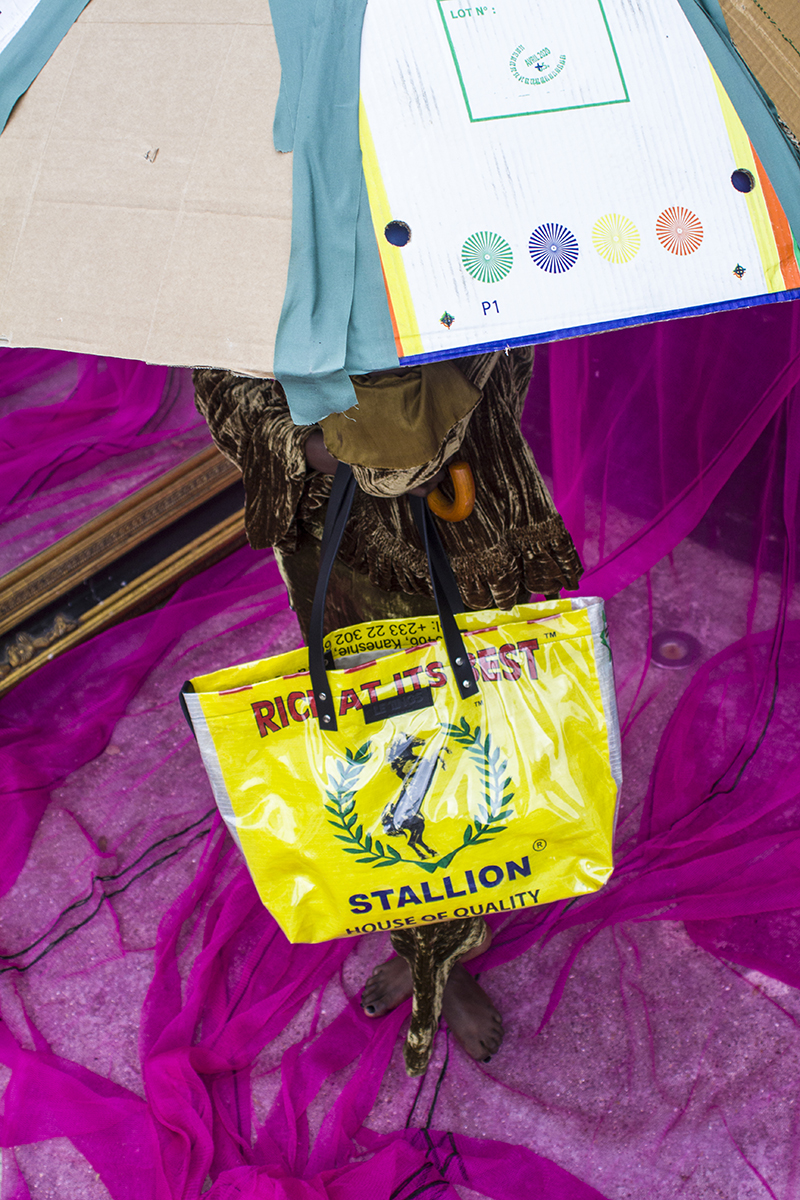Discussing the joys of Dakala cloth and transforming waste into beauty with Nkwo Onwuka
Nkwo Onwuka is addressing textile waste in Nigeria with Dakala cloth, which turns old clothes into a luxuriously woven textile that she uses to create her clever, unisex designs. This inventive material was shortlisted for the Design Museum’s Beazley Designs of the Year 2020 award and since then, she’s become an honouree of The Conscious Fashion Campaign, won in the Emerging Designer category at the CNMI Sustainable Fashion Awards in Milan and collaborated with Levi’s and Vitra at Dutch Design Week. Meanwhile her pieces continue to tour the world with the V&A’s Africa Fashion exhibition. These accolades are the fruits of the Abuja-based designer’s long-standing commitment to mindful design since launching Nkwo in 2007. She tells Assemblage about her community-driven approach to circular fashion.
How would you frame the problem of fast fashion in West Africa?
We don’t have any of the big chains but it arrives as second-hand rubbish at the markets. It has impacted our culture by ruining our textile industry and by forcing us to wear clothing we don’t identify with. But there’s an economy built up around it so if we ban it, what happens to all of the market traders? Plus, it’s a way for people like me to find a resource. We go there, pick it, use it, transform it and sell it.
How do you define sustainability?
For me, sustainability means creating meaningful change in every point of your value chain. It’s not enough to say, ‘Oh it’s handcrafted’. Are you supporting weavers or sourcing natural dyes or using your profits to help those around you? Nkwo has evolved into a mindful brand – it’s about taking everybody along with me.
Can you give an example of this approach in action?
I work with a group of women from an IDP camp in Abuja. I trained them for six weeks and ended up opening a centre where I employ all of them. It’s a safe space where they can work, laugh and bring their children, and when they go back to the camp they are superstars because they have a job.




